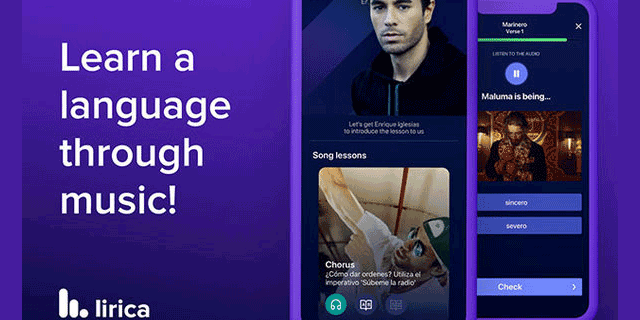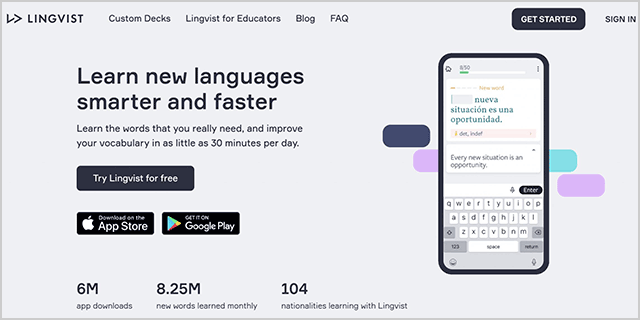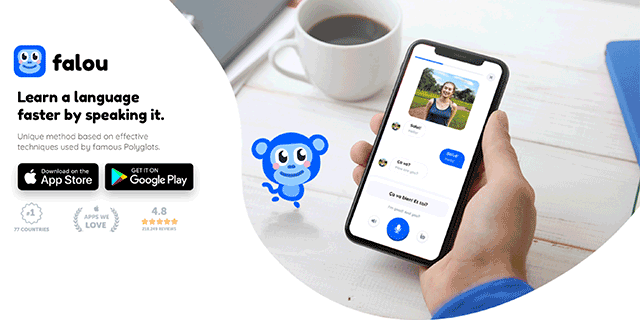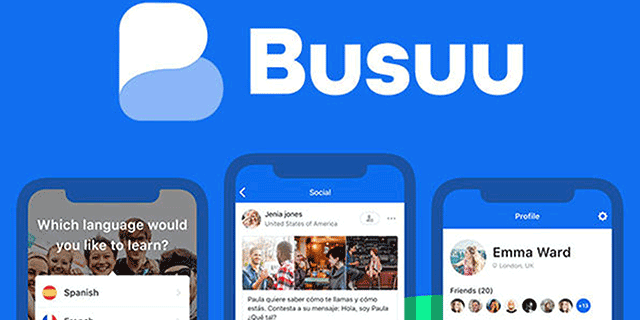Six New and Effective Apps for Learning English
Bilal ZouIn my last post, I shared my story of how I learned English through movies. That was back before smartphones and the internet were a thing.
Nowadays, there are many new apps that can help your language learning. And remember: you can use more than one of these apps at once.
Since you probably already know about the popular apps (such as Duolingo), I will limit this list to apps you probably don’t know about. Most of these apps will have a free version, and a premium version to get advanced features.
Lirica: learn from music
Lirica is a language learning app that harnesses the power of music to help you learn your target language. You can choose from a list of songs in your target language, and the app will provide you with vocabulary and grammar explanations. What I love about this app is that it doesn’t just dump a ton of information on you at once, but instead gradually introduces words to you through repetition.
The free version gives you access to around ten songs, while the premium version costs $6/month and gives you access to all songs.
LingQ: learn by watching the news
If you don’t like the idea of learning from music, LingQ is another app that can help you learn a language through articles and news videos. Like Lirica, LingQ provides translations (with audio) for articles in English. You can also learn common phrases through videos.
The LingQ app provides articles in general categories that are separated into multiple levels of difficulty. There are four levels to choose from: beginner, elementary, intermediate and advanced.
If you feel like practicing your speaking skills, you can also take part in live chat sessions with native speakers.
Lingvist: learn only the words you need
The motto of Lingvist is “Learning, fast-forwarded”. Their algorithms pick words that cover 80% of the language’s use in everyday scenarios. They ask for 20 minutes of your day to teach you 30 words each day that you should know about.
Lingvist’s algorithms also match your knowledge with the appropriate units so you can learn efficiently. They use spaced repetition, which means that the app focuses on words and phrases that you find more difficult while reviewing what you know better.
Falou: learn English by speaking it
Falou is an app that teaches you how to speak, read, and write in English through sentence-completion exercises.
Since the app provides the first part of the sentence, it makes it easier for beginners to start learning how to form correct sentences.
The sentences are varied in difficulty so that you can choose how challenged you want to be.
You get points for completing exercises, which will unlock more exercises as you go along.
Busuu: 10 minutes each day to learn English
After you download Busuu, you will have daily lessons with step by step exercises for around 10 minutes each day. There are over 14 million users who learn from Busuu because of teachers available in 30 languages.
The lesson interface has cards so you can practice vocabulary and conversation. If you choose to, you can also use their premium version to interact with native speakers, attend live sessions, and more.
Language Reactor: learn from watching YouTube
I shared Language Reactor on a previous post and many comments couldn’t believe that such a great service was completely free.
Language Reactor works by filtering videos on YouTube and Netflix you can watch to learn different languages. The app used to be called “Language Learning for Netflix” before they changed their name to include more platforms.
The app has five filters: lesson, review, test, grammar and dialogue. There are many topics you can choose from: business and economy, arts and humanities, social sciences and life skills, natural sciences and technology.
That’s all for the most exciting little-known apps to learn English. If you’re looking for more ways to learn English online I made this ranking of the 32 best language learning apps in 2022.





